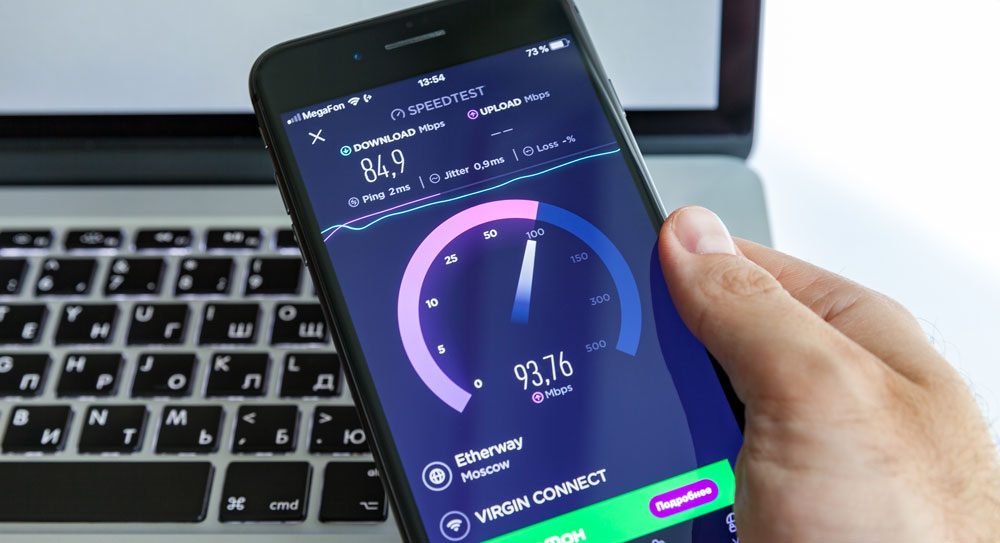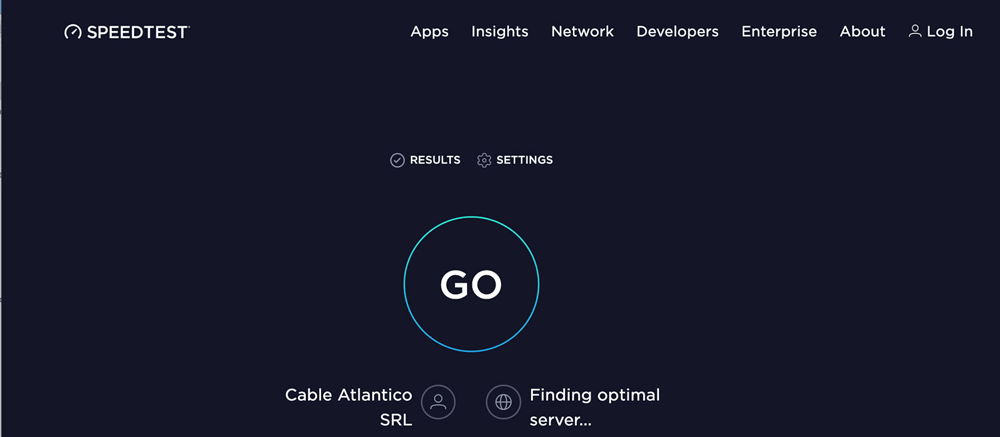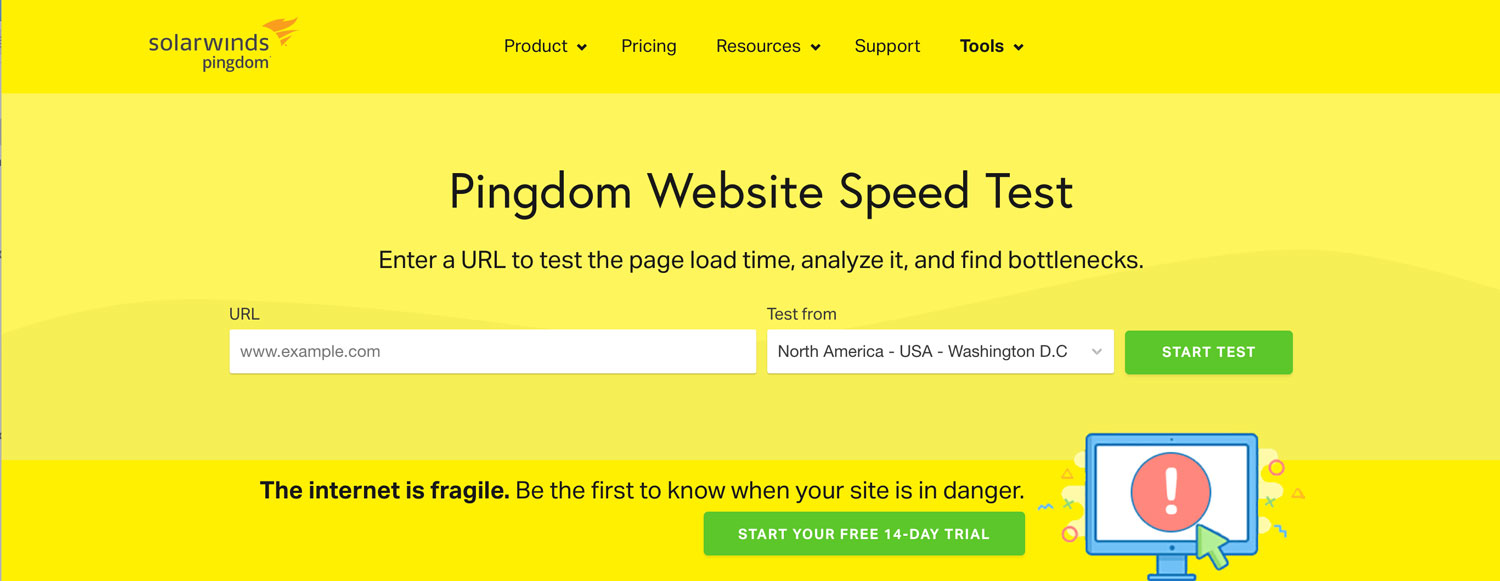There are different kinds of speed tests.
You may be a very fast runner, but what about your speed on the internet?
There is a speed test to find out if your internet connection is downloading information fast enough and also how fast data is uploading. How does this work?
Let’s clear up a few important terms before we go any further:
Download speed:
How quickly you can pull data from a server on the internet to your device. Most connections are designed to download much faster than they upload. This is because the majority of online activity, like loading web pages or streaming videos, consists of downloads. Download speed is measured in megabits per second (Mbps).
Upload speed:
How quickly you send data from your device to the internet. Fast upload speed is helpful when sending large files via email, or in using video-chat to talk to someone else online (since you have to send your video feed to them). Upload speed is measured in megabits per second (Mbps).
Ping:
Also called latency, ping is the reaction time of your connection–how quickly your device gets a response after you’ve sent out a request. A fast ping means a more responsive connection, especially in applications where timing is everything (like video games). Ping is measured in milliseconds (ms).
Mbps:
Megabits per second. A megabit is 1 million bits of information. This is a standard measure of internet speed and 1 Mbps is 1,000 times faster than 1 Kbps. Not to be confused with megabytes (MB) which is a measure of size rather than bandwidth. Because a megabyte is larger than a megabit, and to avoid confusion, MB/s is not used to denote internet speeds.
Kbps:
Kilobits per second. A kilobit is 1,000 bits of information. This older measure of internet speed is only used when needed to describe slower connections. Not to be confused with kilobytes (KB) which is a measure of size rather than bandwidth. Because a kilobyte is larger than a kilobit, and to avoid confusion, KB/s is not used to denote internet speeds.
Using Speedtest.net. https://www.speedtest.net/
Speedtest measures the speed between your device and a test server, using your device’s internet connection. Several factors can impact the speed recorded by a test:
- Devices (phones, tablets, PCs, etc…) can have very different Wi-Fi and cellular radio capabilities. This means you might get one Speedtest result on one device and a different result on another, even using the same provider. Some devices may not be able to measure the full speed of your internet service. It’s also possible that your Wi-Fi router doesn’t support the full speed of your service.
- Speedtest servers may perform differently. Generally, you will get faster speeds from servers closer to you. We recommend testing to a variety of test servers to get the most complete picture of your speed. Speedtest has the world’s largest testing server network, which means you will always have the benefit of testing to a server near your geographic location.
- Other speed testing services use different servers in different locations than Speedtest, so differences in speeds between testing services are not uncommon.
- Browsers (Chrome, Firefox, Edge, Safari, etc…) have different capabilities and may provide different results, particularly on high-speed connections.
What should I do if my internet speed is slow?
Before you contact your internet service provider (ISP) or mobile carrier, check to see if you’re running any ongoing downloads or other programs like video chat that might be hogging your bandwidth. Close those and test again. If your Speedtest result still seems slow, reboot your phone or computer, modem, and router. Then make sure that your router does not have any Quality of Service (QOS) features turned on. If that doesn’t fix the problem, here are a few more steps you can try.
Contacting your ISP or carrier for help is a good next step after you’ve gone through these steps. Keep in mind that on higher bandwidth connections (150 Mbps and above), you will need a higher quality router to keep up.
What speeds do I need for streaming or large downloads?
If you’re asking this question, you’re already sick of the wheel of constant buffering. To get the best possible performance, you generally want download speeds at least as fast as the following:
How fast is your website?
When a visitor comes to your website, how fast does it “load”? Meaning, how fast or slow will the pages come into view? Will they have to wait a few seconds or minutes. The slower your site loads, the faster you lose users.
Using Pingdom. https://tools.pingdom.com/
They built a Website Speed Test to help you analyze your website load speed. The test is designed to help make your site faster by identifying what about a webpage is fast, slow, too big, and so on.
They have tried to make it useful both for experts and novices alike. In short, they wanted it to be an easy-to-use tool built to help webmasters and web developers everywhere optimize their website performance.
You can test the speed of your website by simply clicking on the above image and then insert your website address in the “URL” www.example.com window and click on “Smart Test.” In a few seconds, this site will give you a report (scroll down for it) with information about your site’s speed and suggestions you can apply to increase the performance.
Pingdom offers many other tools that help monitor website performance as well as content management and tools to help easily see in graphs how your site is doing. Check this out: Loading time analyzer.
You may be experiencing longer wait times when visiting websites or you may not be aware of how long your customers and clients have to wait to see your website.

Contact us so we can help you get up to speed and see the difference a few adjustments can make.
















Leave A Comment
You must be logged in to post a comment.